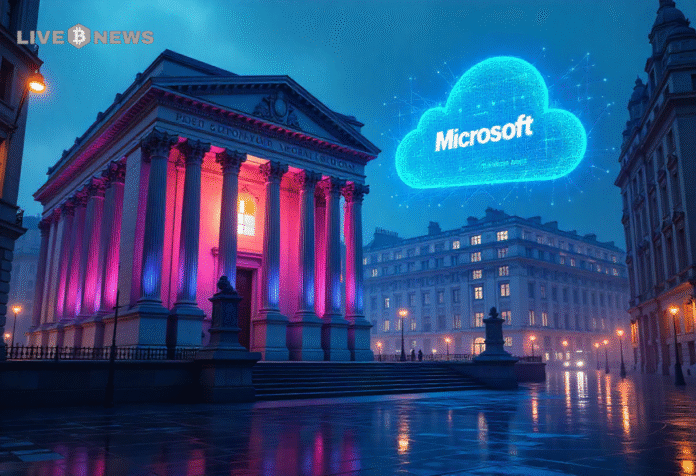The London Stock Exchange has just launched a blockchain platform for private funds with Microsoft Azure, and is aiming to improve issuance.
The London Stock Exchange Group (LSEG) has introduced a blockchain-based platform for private funds. This marks a first for global stock exchanges, and the system is called Digital Markets Infrastructure (DMI).
It went live this week and is aimed at modernising how private investments are issued, traded and settled.
How the blockchain platform works
The DMI is structured to handle everything from issuance to tokenisation and settlement.
At launch, it focuses only on private funds, which are an asset class that historically has been difficult for investors to access. By tokenising these funds, the platform is seeking to reduce barriers and provide more liquidity to a market that has always been traditionally illiquid.
🚀 A new era for private markets starts today.
LSEG launches Digital Markets Infrastructure (DMI) – Private Funds to digitise fund workflows and unlock liquidity.
🔗 Explore → https://t.co/MZJvWXz2Tb#LSEGDMI #PrivateFunds #Tokenisation @Microsoft pic.twitter.com/3w2ufNRioJ
— LSEG (@LSEGplc) September 15, 2025
Private funds listed on the platform will also be visible to Workspace users and will create a direct link between general partners and professional investors.
The first transaction took place through MembersCap, which is a Bermuda-regulated investment manager.
Collaboration with Microsoft
Microsoft was one of the main parts of this new infrastructure.
The company’s cloud service (Azure) holds the system together and provides the scalability it needs for large-scale adoption.
Bill Borden, the corporate vice president of worldwide financial services at Microsoft, described the project as a major example of how the partnership with LSEG is reshaping finance.
He noted the ambition to empower customers with new opportunities through blockchain-enabled services.
Why tokenisation of private funds matters
Private markets tend to involve complex and slow processes that can also be expensive.
Tokenisation reduces these worries by representing fund ownership as blockchain-based tokens. These tokens can be issued, transferred and settled more quickly than traditional paper-based systems.
Dr. Darko Hajdukovic, head of digital markets infrastructure at LSEG, said that current private market structures are overdue for change.
He noted that there is strong demand for interoperable and regulated Defi platforms that can handle both traditional and blockchain-native assets.
The Rising Adoption Rates Of Tokenised Assets
The LSEG’s move comes at a time when major financial firms are moving from blockchain pilot projects to fully functional products.
Asset managers like BlackRock and Franklin Templeton are already offering tokenised money market products. They already manage billions of dollars on Ethereum and other blockchains.
Meet Franklin Templeton's Benji Technology Platform.
Tokenized securities. Intraday Yield. Instant 24/7 wallet-to-wallet transfers.
We're just getting started. #blockchain pic.twitter.com/4BKFTm9Flj
— Franklin Templeton Digital Assets (@FTDA_US) June 10, 2025
Other exchanges are also making similar moves. The Nasdaq, for example, recently filed with the U.S. Securities and Exchange Commission to allow tokenised securities to trade alongside conventional shares.
If approved, that system could go live as early as next year.
Banks are also looking into tokenisation at scale. JPMorgan piloted synchronised settlement technology with Chainlink earlier this year, and is testing how blockchain-based deposits can settle across multiple networks.
Market outlook for tokenised assets
Standard Chartered analysts predict that real-world assets represented on blockchains could reach $30 trillion by 2034.
Current figures indicate that more than $13 billion is locked in tokenized real-world asset products and protocols, demonstrating that the sector is growing rapidly.
Despite this progress, some banks remain cautious. JPMorgan executives, for example, have said that adoption is not advancing as quickly as headlines suggest.
Moreover, large-scale deployment is still a challenge.
Even so, momentum continues to build, and more institutional players are starting to treat blockchain tokenisation as a viable long-term strategy.
For investors, the London Stock Exchange blockchain platform for private funds could open new doors.
Investors may gain access to more diversified portfolios and faster settlement times. The regulated nature of the platform also provides extra security compared to unregulated alternatives.





